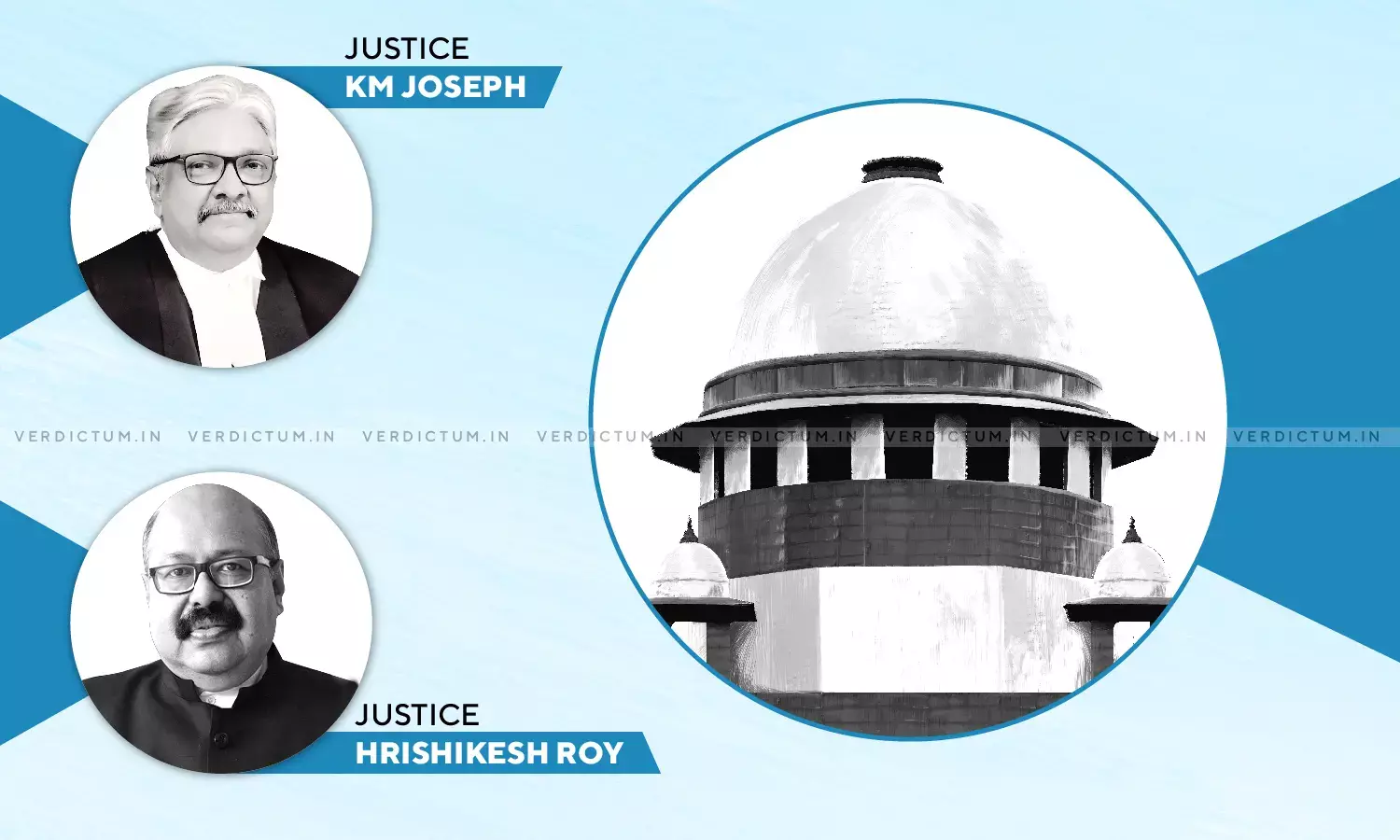Section 138 NI Act – Complainant Not To Lead Evidence Of Financial Capacity Unless Disputed By Accused In Reply Notice – SC

A two-judge Bench of Justice KM Joseph and Justice Hrishikesh Roy in a cheque dishonour case has held that unless a case is set up in the reply notice of the accused that the complainant did not have the wherewithal, it cannot be expected of the complainant to initially lead evidence to show that he had financial capacity.
Counsel Ms Sangeeta Bharti appeared for the Appellant, while Counsel Mr Ajay Marwah appeared for the Respondent – Complainant before the Supreme Court.
In this case, the High Court had dismissed the Criminal Revision of the Appellant filed under Section 397 of CrPC against the order of the Sessions Judge by which the Court, in turn, had affirmed the order of the Chief Judicial Magistrate First Class. The CJM had found the Appellant guilty of an offence under Section 138 of the NI Act.
The Appellant was sentenced to one-year simple imprisonment and was directed to pay a compensation of Rs. 7 lacs.
It was alleged by the Respondent – Complainant that out of friendship he gave Rs. 7 lacs to the Appellant when he was in urgent need of money. Later, the cheque given by the Appellant was dishonoured.
Following the complaint of the Respondent, in the trial, the Appellant examined DWs 1 to 4 who were the officers of four banks. This was done by the Appellant as a probable defence. It was an attempt by the appellant to show that the version of the complainant that he had the financial wherewithal to advance a loan of Rs.7 Lakhs was not to be accepted.
The Apex Court noted, "It is true that this is a case under Section 138 of the Negotiable Instruments Act. Section 139 of the N.I. Act provides that Court shall presume that the holder of a cheque received the cheque of the nature referred to in Section 138 for the discharge, in whole or in part, of any debt or other liability. This presumption, however, is expressly made subject to the position being proved to the contrary. In other words, it is open to the accused to establish that there is no consideration received. It is in the context of this provision that the theory of 'probable defence' has grown."
Further, the Bench added that it is also true that the accused is not expected to discharge an unduly high standard of proof. In this context, the Court observed –
"It is accordingly that the principle has developed that all which the accused needs to establish is a probable defence. As to whether a probable defence has been established is a matter to be decided on the facts of each case on the conspectus of evidence and circumstances that exist."
The Court also held that the Trial Court and the First Appellant Court noted that in the case of Section 138 of NI Act, the complainant need not show in the first instance that he had the capacity.
The Bench held on this point noted –
"The proceedings under Section 138 of the N. I. Act is not a civil suit. At the time, when the complainant gives his evidence, unless a case is set up in the reply notice to the statutory notice sent, that the complainant did not have the wherewithal, it cannot be expected of the complainant to initially lead evidence to show that he had the financial capacity."
The Court opined that the accused has a right to demonstrate that the complainant in a particular case did not have the capacity and therefore the accused is acceptable which he can do producing independent materials in the form of examining witnesses and producing documents.
"Ultimately, it becomes the duty of the Courts to consider carefully and appreciate the totality of the evidence and then come to a conclusion whether in the given case, the accused has shown that the case of the complainant is in peril for the reason that the accused has established a probable defence," the Court added.
The Bench also noted that in this case, the Appellant in the reply notice did not set up any case that the Respondent did not have the financial capacity to advance the loan, hence, a case for interference by the Apex Court was not established by the Appellant.
Accordingly, the Court partly allowed the appeal with a direction that a sum of Rs. 5,000 be paid as a fine by the Appellant in the form of substitution of the sentence of imprisonment of one year, further an amount of Rs. 15,000 to be paid to the Respondent as compensation.
Click here to read/download the Judgment

